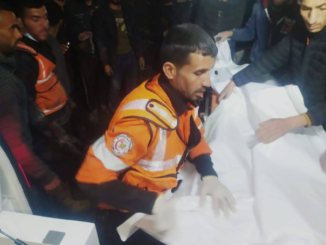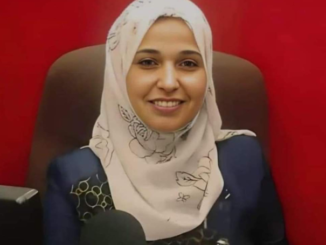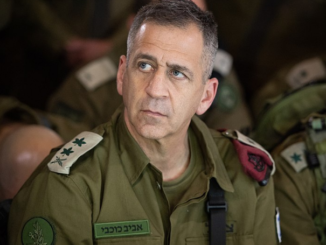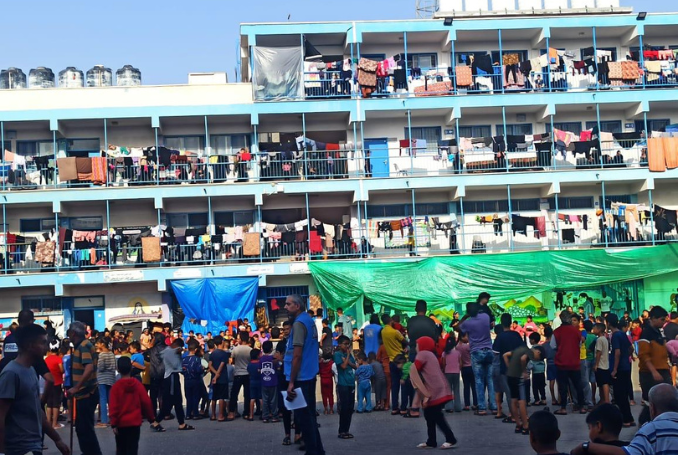
The Palestine Chronicle interviewed a number of displaced people taking shelter in UNRWA schools and recorded testimonies of the difficult humanitarian situation.
“We have lived through many wars in Gaza, but this war is the toughest and most painful for us,” described Um Mohammed al-Malahi, who resides in one of the shelter centers in the central Gaza Strip.
The Palestine Chronicle interviewed a number of displaced people taking shelter in UNRWA schools and recorded testimonies of the difficult humanitarian situations in which these families find themselves.
“We lived with dignity in our homes, suffering alongside the rest of the families in Gaza from the continued Israeli blockade that has been going on for more than 16 years. But we had a home that sheltered us and brought our entire family together,” Um Mohammed said.
“Today, women are living with children, separated from men and youth, with women and children staying in school classrooms, while men, young and old sit and wait in the schoolyard.”
Al-Malahi described the situation in the shelter, saying, “We are living in a terrible situation. We can barely find drinking water and very little food. We stand in long lines to use the bathroom. There is no privacy at all for any family. Hundreds of families are living in a single shelter center, with thousands of women and children. This situation is so difficult.”
Food and Hygiene
Raed Lattouf is a young humanitarian activist assisting with food distribution.
In an interview with the Palestine Chronicle, Raed explained that the families who have sought refuge in UNRWA schools are struggling for lack of space, hygiene facilities, and basic life necessities, such as potable water and food.
“Every day, we strive to provide a meal for one of the shelter centers in the central Gaza Strip. The meal is not sufficient for even a quarter of those present in a single center. This operation is being managed by a 100% volunteer crew.”
“The food situation for the families in UNRWA schools is dreadful. These families cannot provide enough food for their children,” Lattouf said, adding,
“This is what we have experienced during our food distribution efforts. We distribute the food by filling containers that are provided by the families. Long lines form to receive a single plate of food.”
Environmental Hazards in Gaza Shelters
Khalil Al-Ghafari is a humanitarian worker in Gaza.
Speaking to the Palestine Chronicle, Khalil said that “the Israeli army is intensively shelling many houses that are in close proximity to the UNRWA school shelters.”
“There is an grave environmental issue and a serious crisis in terms of hygiene due to the inability to accommodate the large volume of sewage in the absence of water, which has been cut off from Gaza. Additionally, the electricity has been out for twenty consecutive days,” he added.
Khalil explained that municipalities in central Gaza are conducting cleanliness campaigns and attempting to repair sewage lines. However, the fuel shortage prevents workers from being able to perform the needed repairs.
Al-Ghafari expressed deep concern, saying, that “the UNRWA school shelters are not suitable to accommodate this huge number of displaced people.”
“They are essentially classrooms, unfit for living. But people have resorted to them to escape the Israeli airstrikes. Families stand in long lines to get food and even longer lines to use the bathrooms.”
We Want to Live in Tents Atop our Destroyed Homes
Ihab Naseer, a resident of Beit Hanoun in the northern Gaza Strip, expressed his hope that the Israeli war on Gaza would end as soon as possible.
He said that his plan was for his family to return to live in tents atop their destroyed homes, considering it a better option than living in the UNRWA school shelters.
“Living in tents would be better than what we are experiencing now,” he said.
“When will this war stop? When will these humanitarian crimes end?” Naseer asked.
“We don’t know who among our loved ones has passed away, and we don’t know who is still alive. We want this war to end. We want a dignified life for all Palestinians.”
(The Palestine Chronicle)
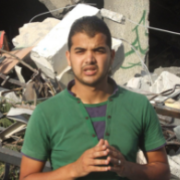
– Abdallah Aljamal is a Gaza-based journalist. He is a contributor for The Palestine Chronicle from the Gaza Strip. His email is abdallahaljamal1987@gmail.com



